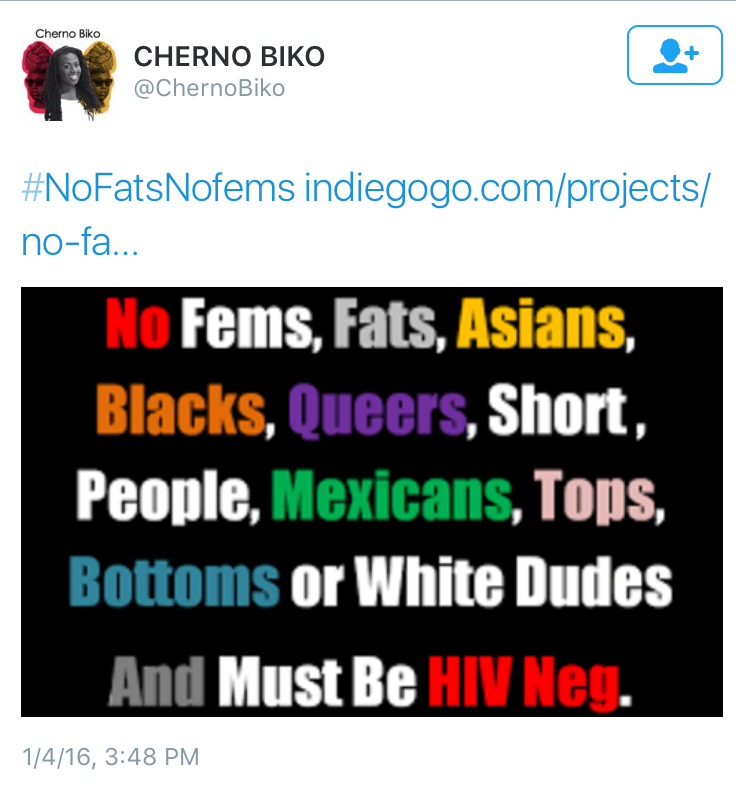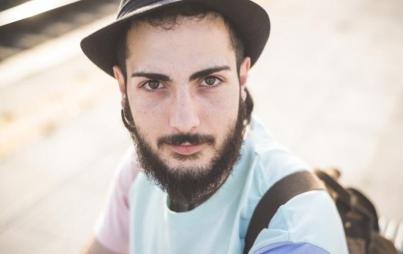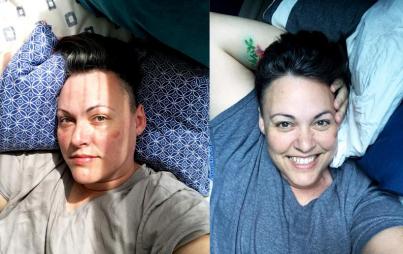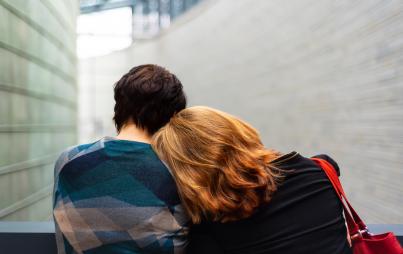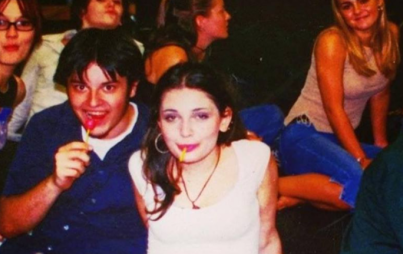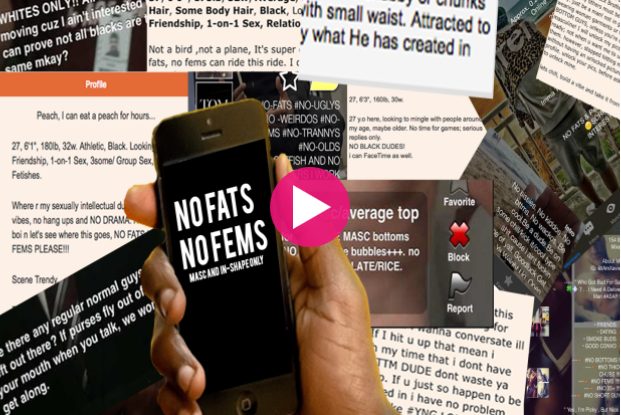
"This points to conversations about race, gender, and misogyny ... I think it shows how our contemporary LGBT politics fail us.”
On any number of dating apps geared towards LGBTQ people, it’s virtually impossible to escape these simple, stinging phrases: “No fats,” “no femmes,” “no blacks,” “no Asians.” Indeed, the list goes on. For a community that’s no stranger to rejection and overt discrimination, oftentimes the worst behavior comes from an otherwise unthinkable place—within ranks.
But one new documentary project, titled “No Fats, No Femmes,” hopes to drill down on the reasons why so much stigma and shame persists within online and real-life LGBT social settings. The film is closing in on the final hours of a crowdfunding campaign on Indiegogo, which so far has raised more than $15,000 for pre-production.
According to the fundraising page, the makers of the film will explore the ways that desirability is informed by pop culture, media and capitalism, primarily through the personal narratives of five black and brown gender non-conforming, queer, trans, fat, femme and disabled people. In an interview with Ravishly, writer and director Jamal Lewis said the film was inspired by his/her own experiences navigating LGBT spaces, where they routinely encounter racism, misogyny, transphobia, and stigma against fat and HIV-positive bodies.
“I remember being so frustrated with seeing ‘no fats, no femmes’ on all the profiles — on Black Gay Chat, Adam4Adam and Jack’d ... and I knew something about this just wasn’t right,” Lewis said of his/her initial experiences on the apps, which took shape during their college years. As a Black, fat, femme and gender non-conforming individual, Lewis noted that desire comes in many forms, but felt there were pervasive attitudes bubbling beneath the surface of so many expressed dating and sexual “preferences.”
“This points to conversations about race, gender, and misogyny,” said Lewis, who is wrapping up a master’s in media studies at The New School. “The same logic extends to phrases like ‘clean only,’ ‘no ballroom kids,’ ‘no voguers,’ ‘no tr*nnies,’ or ‘white men only’ ... I think it shows how our contemporary LGBT politics fail us.”
Even further, the project calls into question how many LGBT social spaces are intentionally designed to restrict access and exclude members of the community. Cherno Biko, an activist and one of the subjects of the documentary, told Ravishly that many of the apps don’t offer any options for trans or gender non-conforming people, some only doing so after being challenged on the issue.
“The worst impact of this exclusion is that not only do we not get to be loved and desired and protected and cared for... but for me the worst part is that I internalized those messages and it contributed to my low self-esteem and feeling depressed,” Biko said. “When you think of the fact that 41% of trans people have attempted suicide and so many more, myself included, were considering it, it’s because of the oppression we see every day—not only on these dating sites but also in communities we’re a part of.”
The $20,000 initial fundraising goal, Lewis said, will primarily be used to film a strong media sample that can be leveraged for grants, sponsorships and a final post-production and release plan. On YouTube, a teaser clip for the film’s opening sequence has already racked up thousands of views—an experimental, vogue-inspired performance of Mark Aghuar’s composition, “A Litany for My Heavenly Brown Body,” which Lewis said sets the tone for the project.
“F*ck your whiteness. F*ck your beauty. F*ck your chest hair. F*ck your beard. F*ck your privilege,” Lewis chants in the video, eventually giving way to a queer set of beatitudes.
“Blessed are the sissies ... Blessed are the trans. Blessed are the high femmes. Blessed are the authentic.”



